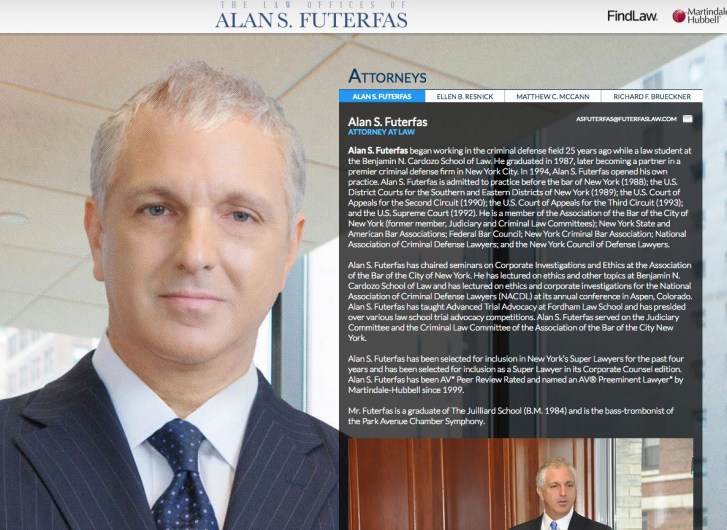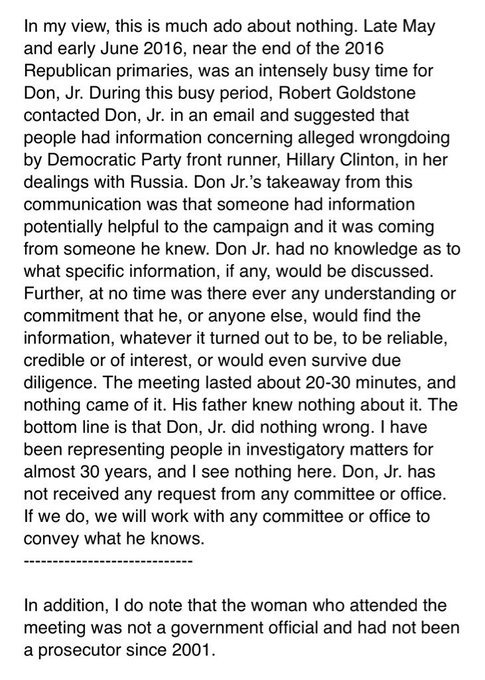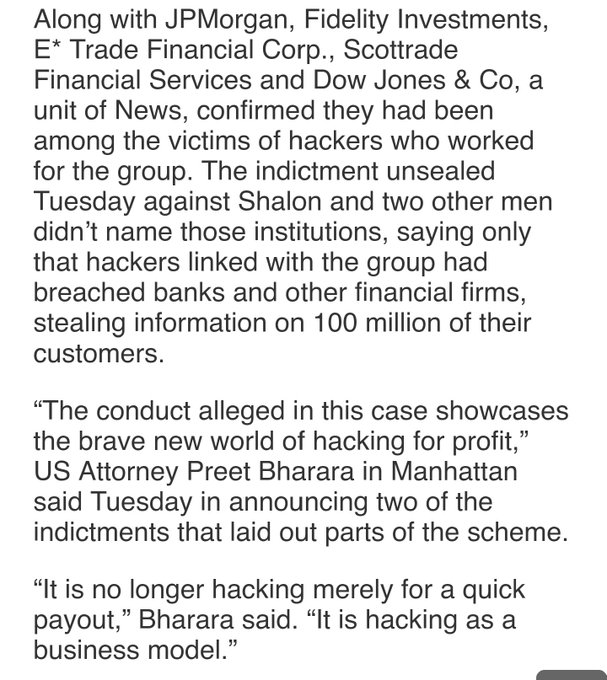
Gil Lavi Photography/http://www.gillavi.com/portraits Alan Futerfas' LinkedIn profile photo.
Donald Trump Jr. retained attorney Alan Futerfas to represent him after it was revealed that he had met with Natalia Veselnitskaya, a Kremlin-linked attorney, and discussed getting damaging information on Hillary Clinton. Donald Jr. published a series of emails he had with Veselnitskaya, saying he thought he was asking for opposition research. Futerfas has a long history of defending white-collar suspects and people alleged to be members of the mob.
Here’s what you need to know.
1. Alan Futerfas Supported Hillary Clinton & Is Highly Critical of President Trump
In an interesting twist, Futerfas is actually a Democrat who supported Hillary Clinton and former President Barack Obama, the New York Post revealed. He donated $1,500 to Clinton in 2016 and more than $1,200 to Obama in 2012.
He was also very critical of President Donald Trump’s decision to fire former Attorney General Sally Yates. Yates was fired after she did not defend President Trump’s original travel ban.
He believed that a proposal for U.S. attorneys to resign in solidarity with Yates was not a good idea, but he did agree that he and others should create a committee to deal with the “Constitutional crisis.”
Shortly after or during law school, he briefly worked with Jay Goldberg, who was later retained as President Trump’s divorce lawyer. He has said that this had no connection with Donald Jr.’s decision to retain him.
Since being retained by Donald Jr., he has said that the Trump family has been “very professional, very cordial, very responsible,” but the last few days have been very intense.
He has never met President Trump in person.
After being retained by Donald Jr., he released the following statement:
2. He Studied Bass Trombone at Juilliard
https://twitter.com/TPM/status/884506972762107915
Before becoming a lawyer, Futerfas studied bass trombone at Juilliard. He told the Miami Herald: Juilliard was one of the most extraordinary experiences of my life. But the education is a limited education. My dad said you could always go to law school. You don’t have to be a lawyer, but you can decide what you want to do.”
Futerfas still plays the bass trombone in the Park Avenue Chamber Symphony, including a nine-date tour in China in 2011.
After Juilliard, he attended Yeshiva University’s Benjamin N. Cardozo School of Law. He worked his way through law school as an intern with a criminal defense attorney in New York. After graduation, he became the attorney, Gerald Shargel’s, partner. In 1994 he started his own firm.
3. His Father, Irwin Futerfas, Was in World War II Before Becoming a Lawyer
Futerfas is close to his parents, Irwin and Charlotte Futerfas. His dad served in the Army and Air Force in World War II. After the war, he got his law degree from the University of Miami and then served as a prosecutor for the Dade state attorney’s office. He was later general master of the 11th Judicial Circuit, hearing family cases.
Charlotte Futerfas worked at Dade County Auditorium, and she and Irwin are still married today. Futerfas stays with them whenever he visits Miami, the Miami Herald reported.
4. Alan Futerfas Represented a Crime Ring Who Killed 10 People in One of His First Cases
After opening his firm in 1994, Futerfas represented a crime ring that killed 10 people as one of his first cases. He had learned that a Colombo hit man, Gregory Scarpa, had been an informant to the FBI. The informant’s handler might have leaked information that started all the violence. His argument was that the government had tried to create a divisive climate that would let them arrest dozens of people. His argument succeeded and more than a dozen of the alleged Colombo members were acquitted or won new trials.
In 1992, prior to starting his own firm, he represented Vittorio Amuso, alleged head of the Lucchese crime family. He was accused of killing nine people, and Futerfas defended him by questioning the credibility of two mobsters who testified against Vittorio. He was not successful in that case.
Since the Colombo case, he has represented numerous high-profile clients, including others accused of being associated with other crime families. He also began working in white collar cases, such as representing the art consultant of L. Dennis Kozlowski, who was indicted for financial crimes, The Washington Post reported.
In 2000, he argued successfully before the Supreme Court. The case, Artuz v. Bennet, was about a man who fired on police officers but was later denied a habeas corpus petition, Time reported.
In 2013, he represented Ezra Zask, a hedge fund manager who plead guilty to possessing child pornography. Zask was put on probation instead of being given jail time.
5. He Defended a Russian Citizen Who Was Held in Prison for 37 Months for Cybercrimes
More recently, he has added cybercrimes to the cases he represents. In 2016, he defended a Russian citizen who was convicted of creating malware that affected 40,000 computers. Nikita Kuzmin, 28, was ultimately ordered to pay $6.9 million to cover loss to bank customers, but he was not given additional prison time after being jailed in 2011 and held for 37 months without a trial, Reuters reported.
Kuzmin created malware known as Gozi and prosecutors said he was an “innovator” in online crime. They said he rented out Gozi to others who wanted to steal money from bank accounts. The malware was disguised as a PDF file. Kuzmin was arrested in 2010 when he traveled to the U.S. for a conference.
In 2014, he represented Israeli citizen Ziv Orenstein, after he was charged with hacking JP Morgan.
According to his law firm’s website, he also chairs seminars on Corporate Investigations and Ethics, lectures on ethics at Benjamin N. Cardozo School of Law, and has taught Advanced Trial Advocacy at Fordham Law School.
Portrait photo of Alan Futerfas courtesy of Gil Lavi. His website can be found here.




